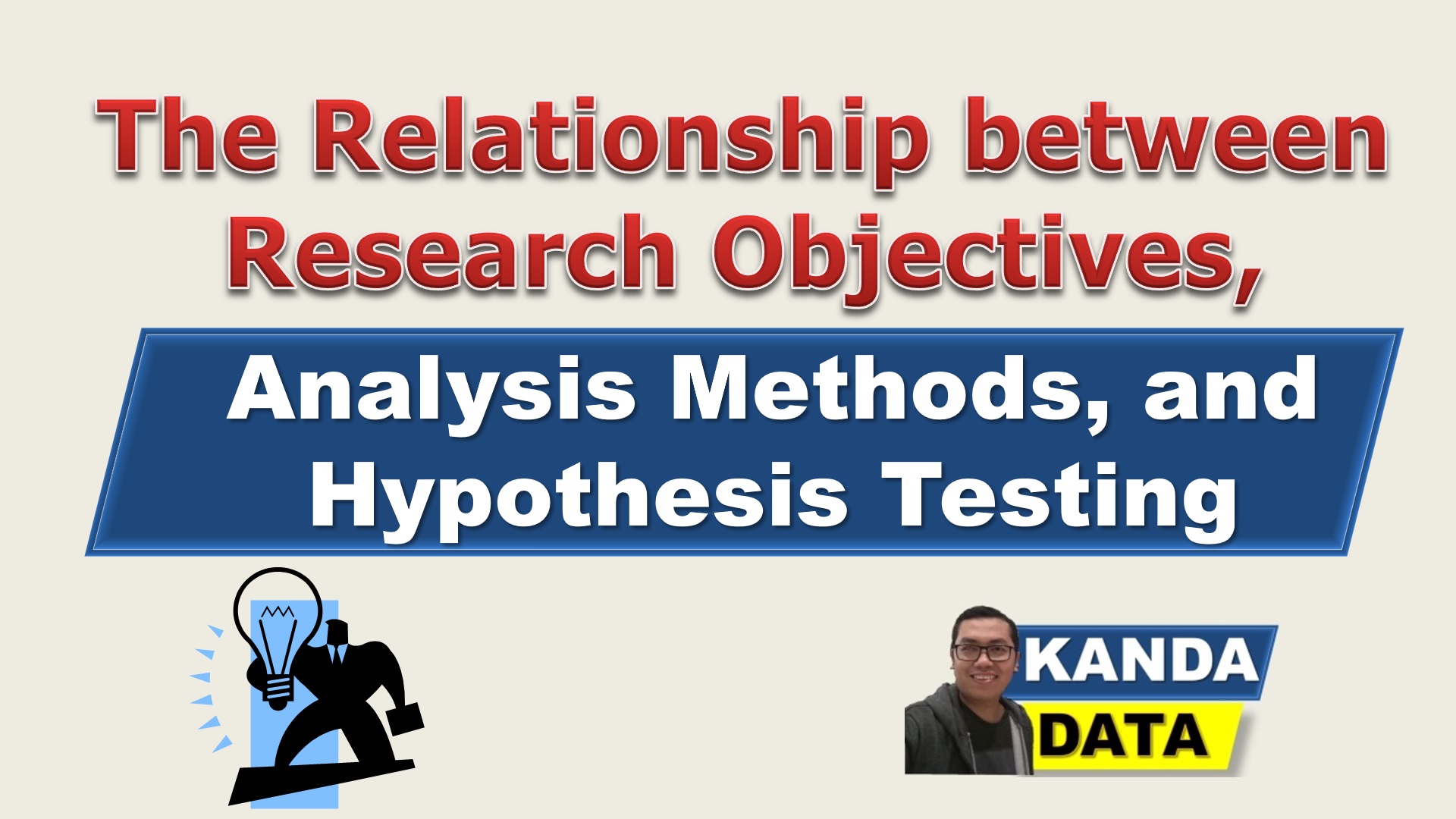Research objectives, analysis methods, and hypothesis testing have a close relationship with one another. Each research objective requires analytical methods to test research hypotheses. On this occasion, Kanda Data will discuss The Relationship between Research Objectives, Analysis Methods, and Hypothesis Testing.
In both survey and experimental research, researchers generally have a research hypothesis. The hypothesis is a temporary assumption made by researchers based on theoretical references and empirical experience (from the results of previous studies).
The hypothesis created by the researcher will be tested through scientifically justifiable research activities. For example, the researcher will take a representative sample in observing a population.
For the sample that has been selected, the next step is to collect the data. Suppose survey research can conduct interviews with respondents to obtain the required data. Meanwhile, in experimental research, researchers will conduct research/experimental stages to get data.
To test a hypothesis, researchers need to create statistical hypotheses. Furthermore, the analysis data should using statistical rules. In this stage, the researcher uses the appropriate analytical method to test the hypothesis.
Statistical hypothesis testing can be created into a null hypothesis and alternative hypotheses. In statistical hypothesis testing, we test whether the null hypothesis is accepted or rejected. If the null hypothesis is rejected, then we accept the alternative hypothesis.
After the researcher obtains the conclusion from the hypothesis test, the researcher will be able to create generalizations. For example, in survey research, the observed sample’s phenomena will describe the population’s existing phenomena.
Based on our discussion this time, we already know that the analytical method is closely related to hypothesis testing. To test the hypothesis, we need the correct method of analysis.
Next, we will discuss the relationship between analytical methods and hypothesis testing with research objectives. We certainly already understand that every research activity aims to observe and elaborate on a phenomenon/problem so that solutions can be obtained to overcome problems.
To answer the research objectives, we need to carry out a series of stages of research that can be scientifically justified. To answer the objective, we will start by building a theoretical framework and synthesizing the results of previous research.
Next, a statistical hypothesis test was conducted to draw conclusions. This conclusion should answer the research objectives. We can develop research methods and methods of analysis.
Therefore, if we have two research objectives, we will have two methods of analysis, two statistical hypothesis tests, and two conclusions. However, sometimes not all studies have a written hypothesis. But, this condition will depend on the field of science, qualitative research, exploration, etc.
In most research areas, we can conclude that research Objectives, Analysis Methods, and Hypothesis Testing are interrelated. Well, I hope this article is helpful for all of you. Wait for the next update of the Kanda Data article!

